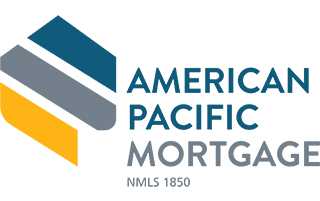Considerations When Choosing a Personal Finance Tool
With something as important as your finances, you want to make sure that any software program you use is worth the time and effort you put into it. Each individual program was designed with a certain user profile in mind and not all of the programs are suited to be used by everyone. Before you make your investment, take time to research the following things about the software you plan on purchasing so that you can get the one that works best for you.
Device Compatibility
Will you be able to run the software on your current devices? What about if you add new devices or updates? Make an effort to thoroughly explore the compatibility of any program you are considering. Think about both now and the near future. Software does you no good if you can’t run it or if you need to invest in all new devices in order to make it work. You also don’t want a software program that will be outdated in a month or two. Check on the availability of future upgrades if they become available.
You may also want to find out how easy it is to share information. This is especially important if you and your partner plan on using the software to keep track of household financial information. If you are both going to be using the software, you will need to take into account both of your skills, needs and devices. When determining how easy or difficult the software is, base your evaluation on the partner who is less skilled in that department. In that way, you will both be able to use it comfortably.
Number of Financial Accounts
If you only have one or two accounts to keep track of, most financial software programs will work, but don’t assume. Check out how many accounts each program you are looking into can support. Also, check the kinds of accounts that can be handled by the software in question. This is especially true if you have numerous accounts that you want to be connected to one piece of software or if you want the software to perform more specialized tasks like calculating your net worth or tracking investments. You don’t want to install software only to find out it can’t handle all you want it to do.
Is the Cost Worth It?
Do keep in mind that the more accounts you are looking to keep track of in one program, the more expensive the initial cost is going to be. This may seem something that concerns you at first, but consider that in the long run you could easily find your investment returned. The organization alone will help with taxes, paying bills on time to avoid late fees and keeping on top of things like investments. Any discrepancies in your accounts will stand out immediately, making them less likely to snowball. Also take into account that human error can be avoided, making it more likely that all the information is correct. It also saves on time, a lot of time. You may pay for functionality, but in the end the functionality pays you.
Support
How often have you run into an issue with something and had to spend hours trying to find contact information for help, and then end up getting passed from one person to another before finding someone who could answer your question? The frustration is intense and you may find yourself uninstalling the software to avoid the hassle in the future. A program won’t do you any good if you run into an error or there is something you don’t understand and there is nobody who can give you answers.
Check into what kind of support comes with the software you plan on purchasing. Is their support available should you have problems installing or running the program? Will someone be available if you have questions about how a certain feature works? How easy or difficult is it to access any available support? Check for things like phone contact, email or instant chat features and decide if what is available meets your needs. By finding out in advance, you eliminate feeling frustrated if the type or amount of support you expect is not available.
Is there a FAQ section on the main website? What about a forum where other users can help with advice and hints and answer questions. You know what level of support is best for you, based on your skill level and experience, but make sure that level of support is available before investing.
How Easy it is To Use?
How easy, and even enjoyable, is the software to run? You want to know in advance if you are going to have to spend time learning a lot to get set up or if the software walks you through an easy setup process. Think about how much time will be needed to get the financial software to the point where it is fully functional and then ask yourself if that is acceptable to you.
Some people find taking time to learn a program enjoyable while others prefer a quick setup and being ready to move forward immediately. Take your personality into consideration where usability is concerned. Are you up to a challenge or would you prefer a quick install and have everything working within an hour or less? Remember, if the software is too difficult to understand you are likely to give up on using it quickly.
Does it Include a Sync or Access to Your Credit Score?
One of the most important aspects of getting control of your finances is to know what your credit score is. It also helps to know if your spending habits affect this score. Does the particular software program you are considering allow you easy access to this information? This can be a particularly helpful piece of knowledge if you are saving for a down payment on a home or car. This is a feature that may not be important to you, but if it is, you need to check on the availability before you buy.
How Secure is the Application Itself?
Security is by far the most important aspect of anything that deals with financial information. You want to make sure that all your information is safe. You don’t want information sold to outside companies and you may not want people knowing your spending habits. Before using any service, research:
- Security measures – How do they ensure your information is safe? Do they utilize the same type of security system used by banks and other financial institutions? What system do they have in place to deal with possible security breaches?
- What is their policy on selling purchasing information to outside researchers? Is your name and contact information at risk of being shared with third parties? If the service does share information with third parties, what information is shared and do they offer an opt-out method?
If you can’t find the answer to your security questions, contact the service and ask. Don’t sign up until you are fully satisfied with the answers you get. Any reputable company will take the time to answer security questions because they will understand the importance. If the service will not answer your questions, look elsewhere.
What Are Others Saying?
We’re not talking about simply reading testimonials on the service’s website. Find places on the web that offer unbiased reviews, both professional and by users of the software. Also don’t simply look at “star ratings”, actually read the reviews. Sometimes a bad review will be posted by someone complaining that a software program didn’t do something. They get upset but if they had done their homework, they would have known that software does not claim to do that particular thing. Also, reviews such as “great program” , with no details, aren’t very helpful. Look for in-depth reviews that take the time to explain what the user found good and bad about the software. It is this type of review that will give you the most information and help you know what you will be getting.
We Would Recommend That You Try a Few Options at First
The best way to learn whether or not a certain piece of personal finance software is one that you can use comfortably is to try it. Once you have done your research, pick three to five that seem to be likely candidates. At this point, you should know if they are capable of doing what you want them to do and if they meet your needs regarding privacy and functional capability. What your research can’t tell you is what it feels like to actually use the software.
If possible, see if you can get a trial version of the software. In some cases you can get a fully functional one but others may limit the functions to only the most common ones in their trial versions. Give each one a fair trial. Some things you are looking for at this point include:
- Does the software operate smoothly with your devices? Can you sync everything smoothly or is there a glitch somewhere?
- How easy is it to figure out the operation of the program? Make sure you understand how to do each function you want to be able to do.
- Will the software be easy to use regularly or do you think it might become more of a chore over time? Remember, if you aren’t going to use the personal finance software, it isn’t going to be of any use.
- Can you easily understand the reports that are produced?
Once you have tried all the software programs on your shortlist, decide on the one that is most comfortable to use, has all the capabilities you are looking for and plays well with your other computer programs and devices. Now, using the personal finance software is up to you.
The views, articles, postings, and other information listed on this website are personal and do not necessarily represent the opinion or the position of American Pacific Mortgage Corporation or US Lending Company.
* For loan examples and more information visit our disclosure page at https://www.uslendingcompany.com/disclosures/





